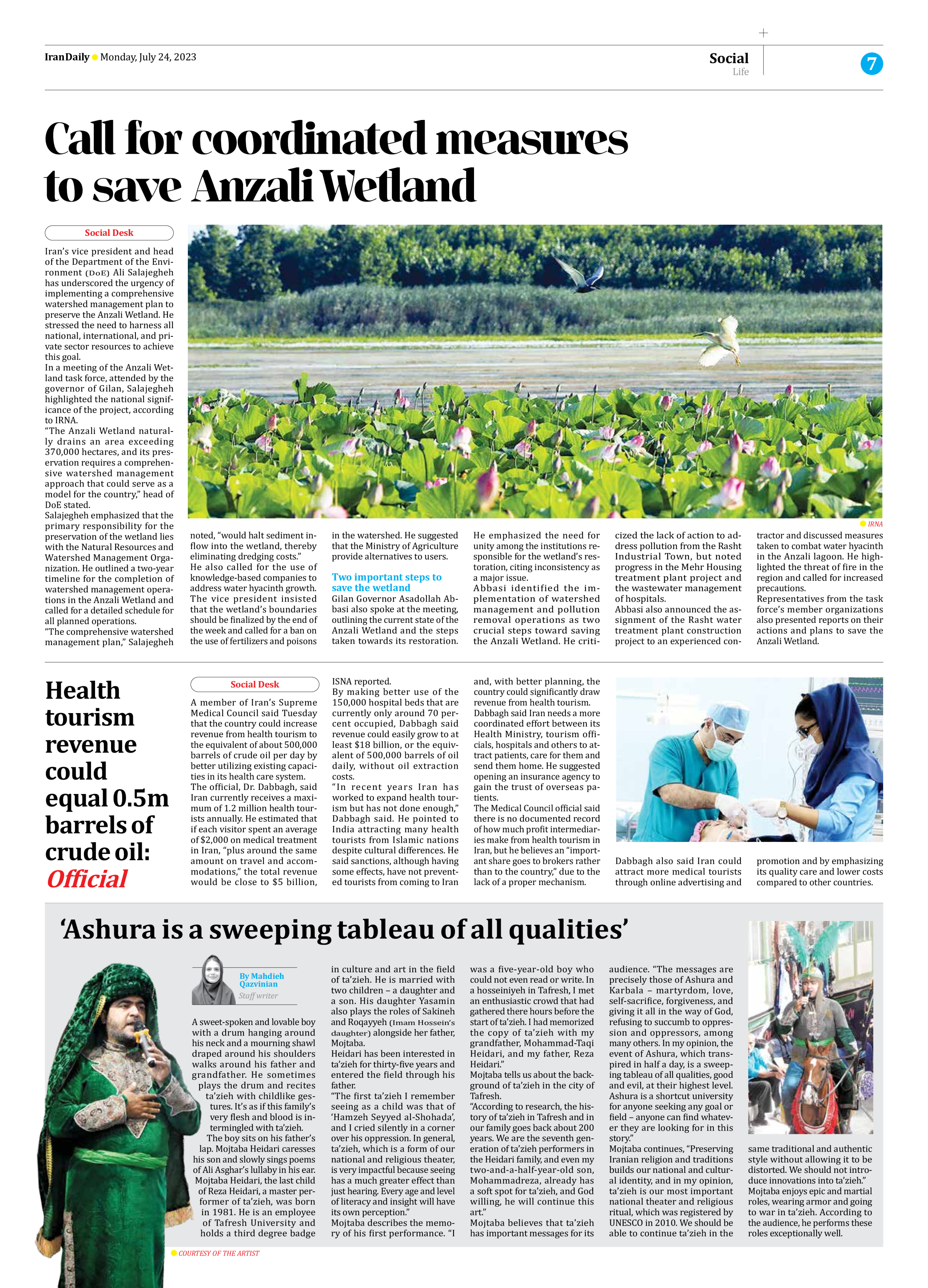
‘Ashura is a sweeping tableau of all qualities’
By Mahdieh Qazvinian
Staff writer
A sweet-spoken and lovable boy with a drum hanging around his neck and a mourning shawl draped around his shoulders walks around his father and grandfather. He sometimes plays the drum and recites ta’zieh with childlike gestures. It’s as if this family’s very flesh and blood is intermingled with ta’zieh.
The boy sits on his father’s lap. Mojtaba Heidari caresses his son and slowly sings poems of Ali Asghar’s lullaby in his ear.
Mojtaba Heidari, the last child of Reza Heidari, a master performer of ta’zieh, was born in 1981. He is an employee of Tafresh University and holds a third degree badge in culture and art in the field of ta’zieh. He is married with two children – a daughter and a son. His daughter Yasamin also plays the roles of Sakineh and Roqayyeh (Imam Hossein’s daughter) alongside her father, Mojtaba.
Heidari has been interested in ta’zieh for thirty-five years and entered the field through his father.
“The first ta’zieh I remember seeing as a child was that of ‘Hamzeh Seyyed al-Shohada’, and I cried silently in a corner over his oppression. In general, ta’zieh, which is a form of our national and religious theater, is very impactful because seeing has a much greater effect than just hearing. Every age and level of literacy and insight will have its own perception.”
Mojtaba describes the memory of his first performance. “I was a five-year-old boy who could not even read or write. In a hosseiniyeh in Tafresh, I met an enthusiastic crowd that had gathered there hours before the start of ta’zieh. I had memorized the copy of ta’zieh with my grandfather, Mohammad-Taqi Heidari, and my father, Reza Heidari.”
Mojtaba tells us about the background of ta’zieh in the city of Tafresh.
“According to research, the history of ta’zieh in Tafresh and in our family goes back about 200 years. We are the seventh generation of ta’zieh performers in the Heidari family, and even my two-and-a-half-year-old son, Mohammadreza, already has a soft spot for ta’zieh, and God willing, he will continue this art.”
Mojtaba believes that ta’zieh has important messages for its audience. “The messages are precisely those of Ashura and Karbala – martyrdom, love, self-sacrifice, forgiveness, and giving it all in the way of God, refusing to succumb to oppression and oppressors, among many others. In my opinion, the event of Ashura, which transpired in half a day, is a sweeping tableau of all qualities, good and evil, at their highest level. Ashura is a shortcut university for anyone seeking any goal or field – anyone can find whatever they are looking for in this story.”
Mojtaba continues, “Preserving Iranian religion and traditions builds our national and cultural identity, and in my opinion, ta’zieh is our most important national theater and religious ritual, which was registered by UNESCO in 2010. We should be able to continue ta’zieh in the same traditional and authentic style without allowing it to be distorted. We should not introduce innovations into ta’zieh.”
Mojtaba enjoys epic and martial roles, wearing armor and going to war in ta’zieh. According to the audience, he performs these roles exceptionally well.







